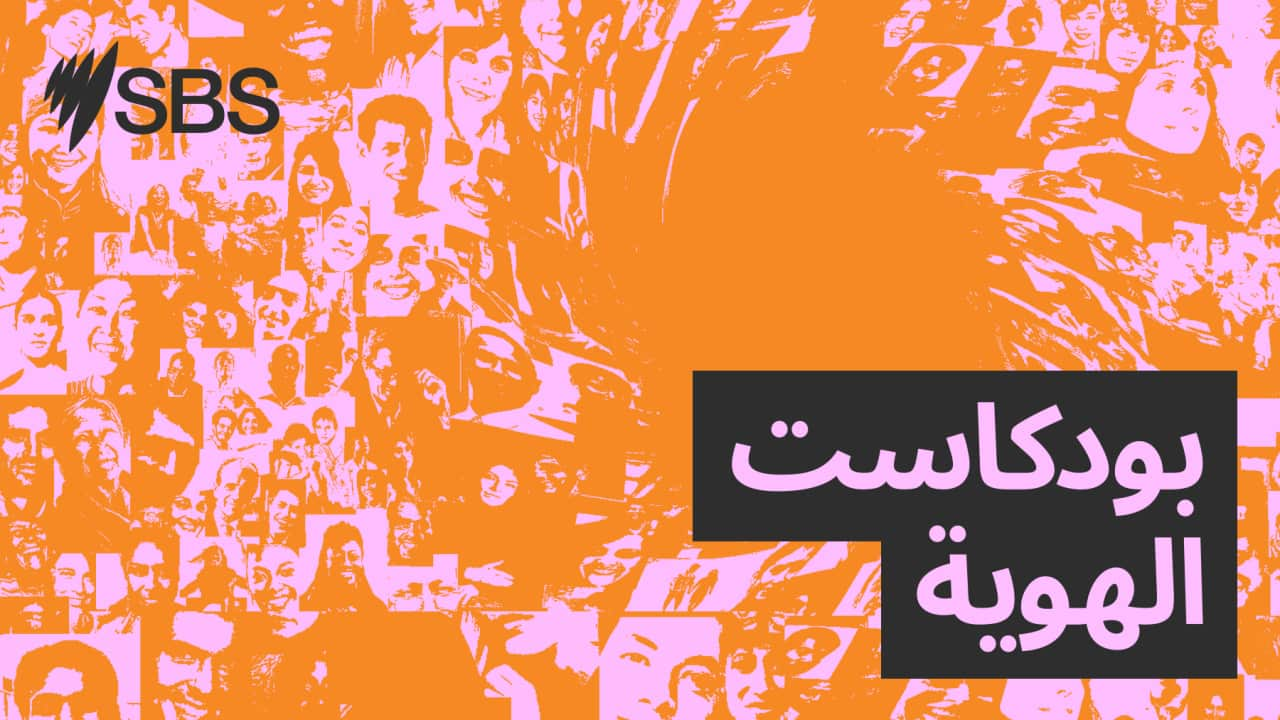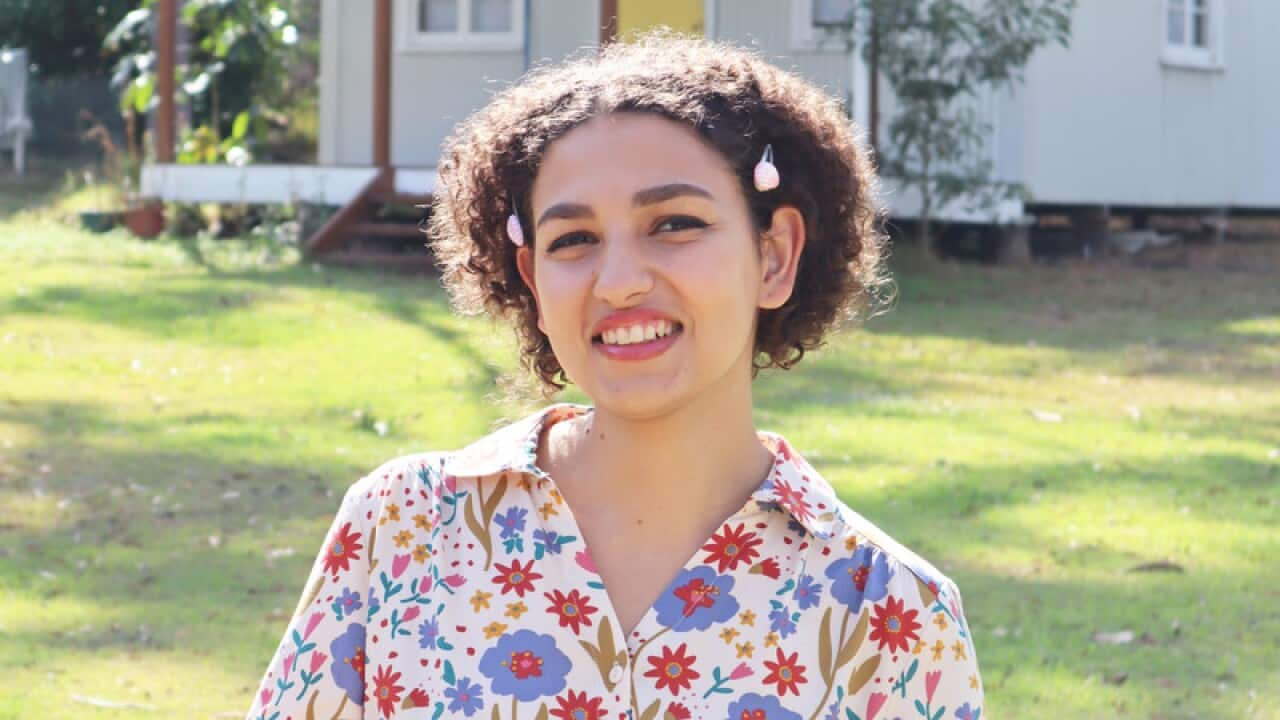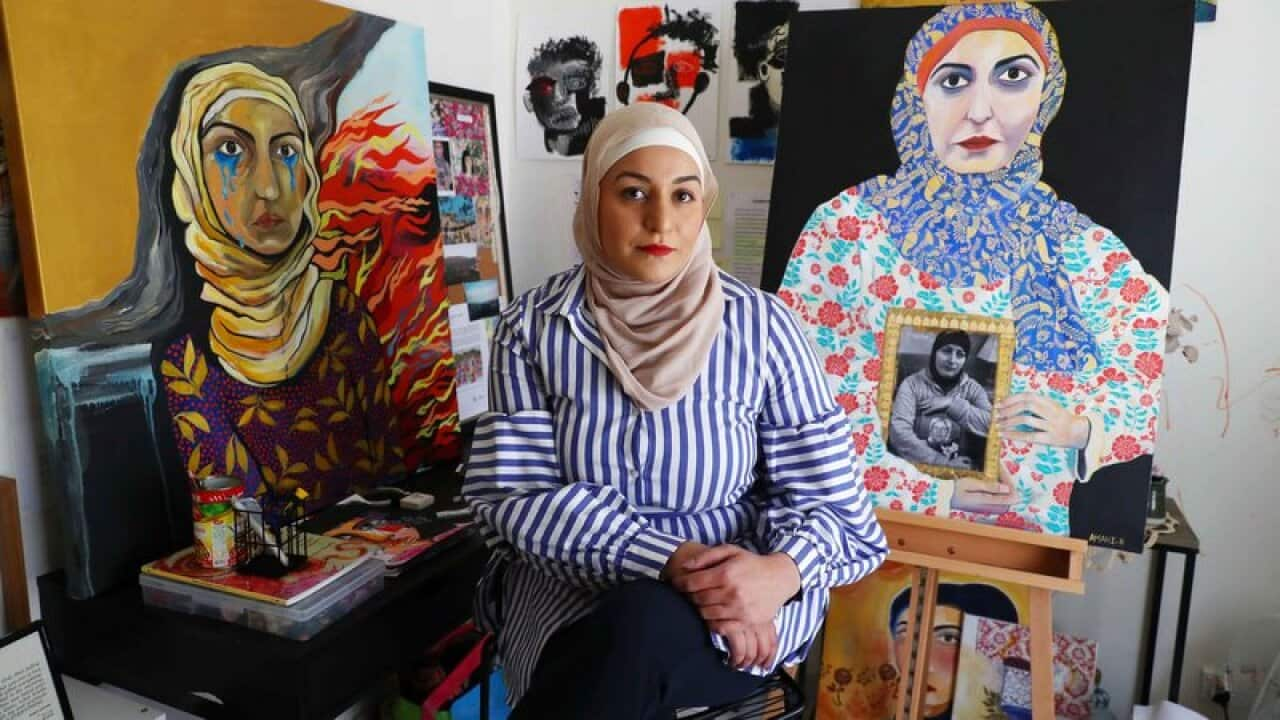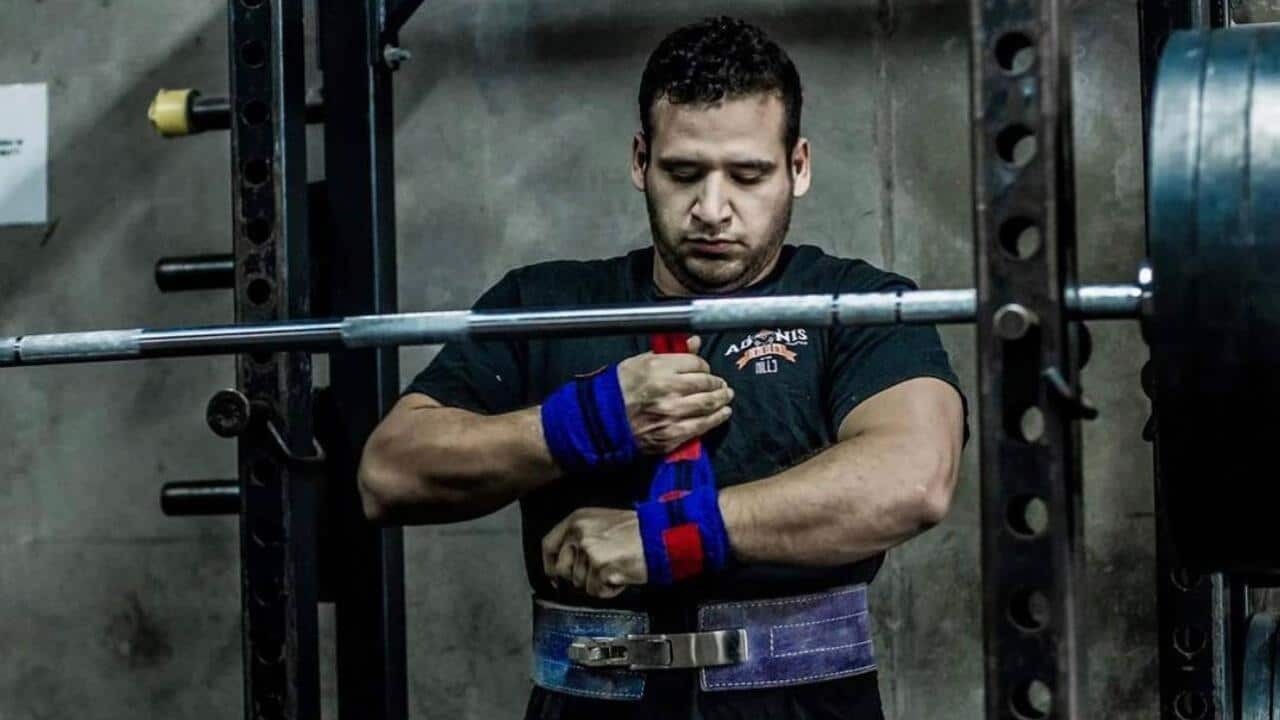Listen to Sara El Sayed's story by clicking on the audio link attached to the image above. Or via your favourite podcast platform here
Sara El Sayed is an Australian-Egyptian who faced complex challenges as a child with a mixed identity.
All that she wanted back at school was to feel accepted by her classmates and to join the “cool” girls’ aerobics team and community.
“Since starting school in Australia, all I wanted was to be on the aerobics team. We didn’t have aerobics back in Egypt. We had ballet. I tried it and hated it. I wasn’t delicate enough.
“But aerobics – that was a dance with grit. The girls were fit and sporty. They were strong, too. You could see it in the way they held themselves solid in their push-ups, and the way their legs flew into the air, to limits that seemed humanly impossible, and stayed there. Every movement was firm and resolute.”
Sara migrated to Australia with her family from Egypt when she was 7-years-old and was enrolled in an elementary school in Queensland.
There, she fell in love with Aerobics and everything to do with it. “I wanted the blue and white sequined leotard with matching scrunchie. I wanted the stockings that made your legs three shades darker than the rest of your body. I wanted the white tube socks and I wanted the Princess Reebok shoes.”
“I wanted the blue and white sequined leotard with matching scrunchie. I wanted the stockings that made your legs three shades darker than the rest of your body. I wanted the white tube socks and I wanted the Princess Reebok shoes.”

Sara El Sayed Source: Supplied
So, she decided to try it out when she was 12-years-old. However, the implantation of this decision was not easy.
She feared her parents' rejection; Sara began planning for the best way to ask them very carefully.
It’s compulsory, she would whisper to herself, practicing in her bedroom.
“I had to develop a convincing argument if my parents were to ever let me do it.”
“‘It’s part of an exam at school.’ No. That could easily be disproved. ‘My friends said that if I don’t do it they won’t be my friends anymore.’ No. They’d never believe that. Even if my parents did believe it, they wouldn’t care.”
Learn more about my Arab Identity podcast

My Arab Identity - بودكاست الهوية
Sara feared that her parents would refuse because being on the team meant wearing a leotard, which her parents didn’t approve of.
“There is a lot of anxiety that comes with asking your parents for things. You know they’re going to say no, so you have to plan your approach very carefully.”
Girls in the team wore the blue leotard, which is like a one-piece swimsuit, with sequins and stockings. However, they were nude in colour. This was a little ‘too revealing’ for her parents' liking.
“I don’t think I ever really convinced them; it was more of a compromise. They let me audition for the team if I wore shorts underneath my leotard. This was not a good look, but I agreed because I wanted to be on the team.”
Her father said she would have to wear trousers over the top if she wanted to dance. Her mother ended up buying her a pair of three-quarter bike shorts to wear under the leotard.
“So, imagine my torso covered in a sparkly leotard, thigh-to-knees in black shorts, and calf to ankle in stockings. Blue, black, brown – not cute.”
To escape this embarrassment, Sara would take them off at the competitions.
They were too embarrassing. Sorry, Mama!
Sara would have liked to be one of the popular girls at school, after finally joining the team, but instead she was bullied.
“The girls tended to bully me because I was hairy. I had hair on my back which wasn’t covered when I wore the leotard. They also bullied me because of my skin colour: being brown, not white.”
Sara recalls:
“‘Oh my God,’ said a voice from behind me. In the mirror, I saw Jess and Gina, gawking. A group of girls around them giggled. ‘Do you guys see that?’ I turned around. They were all looking at me.
‘So gross,’ said Gina. ‘What are you, an ape?’
‘Your back is so hairy,’ said Jess. ‘You look really bad in that leo.’
‘You need to shave yourself,’ said Gina.
I ran back into the toilet stall. I didn’t come out until the bell rang”
Sara didn’t see the bullying as an injustice, more so just something she should feel ashamed of.
“I didn’t bring it up with my parents. They experienced discrimination too, and I guess I saw these experiences as something we just have to deal with as migrants – as non-white people. It upset me, of course, but I didn’t see how telling my parents would achieve anything.
“I felt like an outsider when I was bullied. It makes you feel different. The hair stuff was hurtful, but I could at least try to get rid of it. The skin stuff was harder to deal with. I became very self-conscious about my body. As a kid it’s difficult to understand what to do when people make you feel bad about things you can’t change.”
Sara removed her back hair with products without her parents’ knowledge and the girls at school noticed.
She recalls:
Wow, looks like the woolly mammoth went to the barber,” said Jess.
Sara did not know exactly what to do in such situation back then, especially regarding matters that you cannot change in yourself.
Learn more about my Arab Identity podcast

My Arab Identity - بودكاست الهوية
“They bonded over picking on me. I’d like to say that it was because they were jealous of my dancing ability, but I wasn’t that good.”
As Sara got older jokes became more about her being a terrorist.
“It was less racist and more Islamophobic.
“Kids would ask me if I had a bomb in my bag or under my clothes – things like that.
“When it first started happening, I would get really upset, but then it happened so often that if I got mad at every person who made a terrorist joke about me, I would have no friends left. So, I learnt to go along with it, and laugh with them. In hindsight this was not a great idea, but I didn’t feel like I had any other choice.”
Sara found it difficult, as a child, to address the issues alone. “I wish I had people to back me up – to step in and stand up for me. It’s hard to do it on your own.
“I wish I had people to back me up – to step in and stand up for me. It’s hard to do it on your own.

Sara El Sayed Source: Supplied
“I was a young child in a mostly white community, with parents trying to hold on to their traditional values. I don’t think that it was a clear, black and white trade-off though.
“I didn’t give up one part of myself to be more like the other. That wasn’t possible, because by virtue of being a migrant I could never really be fully Arab or fully Australian. You learn to strategically manage yourself in these in-between spaces.”
Even though she developed a strategy to deal with rejection and bullying, it doesn’t mean that she is over it.
“I don’t think I have completely overcome it – a work in progress.”
She sends a message to parents and children. “To parents I would say make sure your kids know it’s okay to talk to you, and that you will try to understand. Try not to get mad at them if you don’t understand.
“To parents I would say make sure your kids know it’s okay to talk to you, and that you will try to understand. Try not to get mad at them if you don’t understand.

Sara El Sayed Source: Supplied
“To kids, I would say don’t be afraid of being angry when someone does something to hurt you. You’re allowed to be angry.”
Sara El Sayed is an Egyptian-born, freelance writer and MA student in Fine Arts based in Brisbane. Her research focuses on documenting the stories of Egyptian migrant women through digital media. Her work is inspired by her culture, family and identity as a migrant.
This is the ninth episode of , in which young Arab Australians speak about how they navigate a mixed identity. Hear more episodes and read the rest of the stories .
Listen and read more episodes from My Arab Identity podcast:

Where will I be buried?










